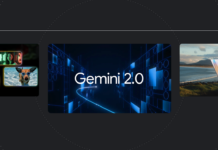France’s Aversion to Coalitions Means Any New Government Risks Early Collapse: A Critical Analysis
In a significant development that has captivated the attention of the global political sphere, France’s reluctance to embrace coalition governments is emerging as a potential threat to the stability of any newly formed government. This news has been highly trending on Google search today, reflecting widespread public interest and concern.
The Political Dilemma
France’s political landscape has been notably characterized by a strong aversion to coalition governments. This historical tendency has surfaced prominently in light of recent events. Following a snap election, France now finds itself with three roughly equal political blocs. The unwillingness of these blocs to compromise or form what are being termed ‘unnatural alliances’ has raised the specter of a potential early collapse of any new government.
The Risks of No-Confidence Motions
The reluctance to form coalitions is not a new phenomenon in French politics, but it has acquired a new urgency. As political leaders steadfastly rule out the possibility of alliances, the newly established government faces a looming risk of no-confidence motions. A no-confidence motion, which can be initiated by the opposition, serves as a formal way to express that the current government no longer has the confidence of the majority of the legislative body. If passed, it can lead to the collapse of the government and prompt new elections.
Historical Context
Historically, France has favored single-party majority governments. This preference stems from a desire for political stability and clear governance. However, the current political climate, marked by a divided electorate, has made the formation of a single-party majority increasingly challenging. The recent election has underscored this with three blocs emerging almost equal in strength, each unwilling to cede ground or form alliances with the others.
The Current Scenario
The current political impasse can be traced back to the snap election held in July 2024. According to The Guardian, the election results have brought about a precarious balance of power, with no single party attaining a decisive majority. This fragmentation has led to a deadlock, with each party wary of entering into coalitions that could be perceived as compromising their core principles or alienating their voter base.
For more information, you can read the detailed report by The Guardian here.
The Challenges Ahead
The path ahead for France is fraught with complexities. The refusal to form coalitions could lead to a series of no-confidence motions, making it difficult for any government to sustain itself for a considerable period. This instability could have far-reaching implications for policy-making, governance, and France’s standing on the international stage.
Expert Opinions and Reactions
Political analysts and experts have weighed in on the situation, expressing concerns about the potential for prolonged political instability. Professor Jean-Pierre Dupont, a renowned political scientist at Sciences Po, Paris, remarked, “The current impasse is a reflection of deeper societal divisions. The unwillingness to form coalitions is symptomatic of a broader reluctance to compromise, which could undermine democratic governance.”
Meanwhile, reactions from the public have been mixed. Some citizens express frustration over the perceived inefficacy of the political system, while others applaud the leaders’ steadfastness in sticking to their principles.
International Perspective
The international community is closely monitoring the developments in France. The European Union, in particular, has a vested interest in the stability of one of its key member states. Political instability in France could have ripple effects across the EU, impacting economic policies, security cooperation, and diplomatic relations.
A Glimpse into the Future
Looking ahead, the immediate future of France’s political landscape remains uncertain. The current impasse could either lead to a breakthrough, where parties find a way to collaborate, or it could result in a series of short-lived governments plagued by no-confidence motions. The latter scenario could eventually necessitate another round of elections, further prolonging the period of uncertainty.
Conclusion
The unfolding political situation in France serves as a stark reminder of the challenges inherent in democratic governance, especially in a deeply divided society. The reluctance to form coalitions, while rooted in historical preferences, may need to be re-evaluated in light of the current political realities. For now, the nation and the world watch closely, hoping for a resolution that ensures stable and effective governance.
For more detailed insights and developments, refer to the comprehensive report by The Guardian here.
This breaking news has not only dominated Google searches today but has also sparked a broader conversation about the future of coalition politics in France and its implications for democratic governance worldwide.


































